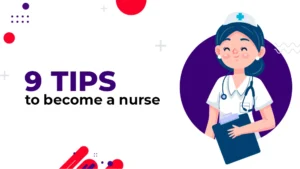Nursing is more than just a profession—it’s a commitment to care, heal, and serve. But what truly transforms a nursing student into a confident, capable professional? The answer lies in practical experience. For students pursuing a GNM nursing course or B.Sc. Nursing from a reputable nursing college in West Bengal, hands-on clinical exposure can significantly impact long-term career growth and success.
In this blog, we explore how practical training during nursing education plays a crucial role in shaping future healthcare professionals, especially in a competitive and ever-evolving field like nursing.
Bridging the Gap Between Theory and Practice
While textbooks lay the foundation, it’s real-life hospital experience that teaches a nursing student how to respond to medical situations effectively. A good nursing college in West Bengal integrates theory with extensive clinical practice. Whether it’s observing a surgery, assisting in maternity wards, or administering medication, students learn to apply theoretical knowledge in real-time patient care scenarios.
This bridging of the theory-practice gap helps develop confidence, clinical judgment, and decision-making abilities—essential skills for every successful nurse.
Building Confidence and Professional Competence
Students enrolled in a GNM nursing course undergo practical training in various departments such as pediatrics, psychiatry, emergency care, and community health. Working under the guidance of senior nurses and doctors, they begin to understand the pace and pressure of hospital life.
By interacting directly with patients and medical teams, students grow not only in competence but also in confidence—qualities that will help them during job interviews, first postings, and even leadership roles later in their career.
Enhancing Communication and Interpersonal Skills
Good nurses are not just technically sound; they are also empathetic communicators. Practical training offers daily opportunities to interact with patients, their families, and healthcare professionals. This helps students improve their interpersonal and soft skills—critical for building patient trust, resolving conflicts, and collaborating with medical teams.
Such experience also prepares students to handle high-stress situations with compassion and clarity, a hallmark of excellent nursing care.
Real-World Exposure to Healthcare Systems
Nursing students often do internships or rotations in multi-speciality hospitals, rural health camps, and government clinics. This real-world exposure provides insights into diverse healthcare systems, challenges in patient management, and medical ethics.
Institutes like leading nursing colleges in West Bengal often collaborate with reputed hospitals for clinical postings, ensuring that students are industry-ready from day one.
Improved Job Readiness and Placement Opportunities
Employers in the healthcare sector value candidates with substantial clinical exposure. A student who has performed ward duties, emergency care, and community health visits during their GNM nursing course is more likely to secure a job quickly and perform better in initial roles.
Practical training also helps students identify their areas of interest—be it pediatric care, ICU nursing, or surgical assistance—so they can plan their careers more strategically.
- Strong Foundation for Higher Studies and Global Opportunities
Nurses with a solid base in clinical practice are better prepared for higher education, such as post-basic B.Sc. Nursing, M.Sc. Nursing, or even specialized certifications abroad. Practical experience strengthens their resume and application profiles, increasing their chances of getting into reputed institutions or landing international job offers.
Conclusion
In today’s healthcare landscape, technical knowledge alone is not enough. Practical training transforms aspiring nurses into professionals who can think critically, act swiftly, and care compassionately.
Whether you are enrolling in a GNM nursing course or a degree program at a nursing college in West Bengal, make sure the curriculum emphasizes clinical exposure. The experience you gain during those hospital rounds and patient care hours could very well be the cornerstone of a long, successful, and fulfilling nursing career.




